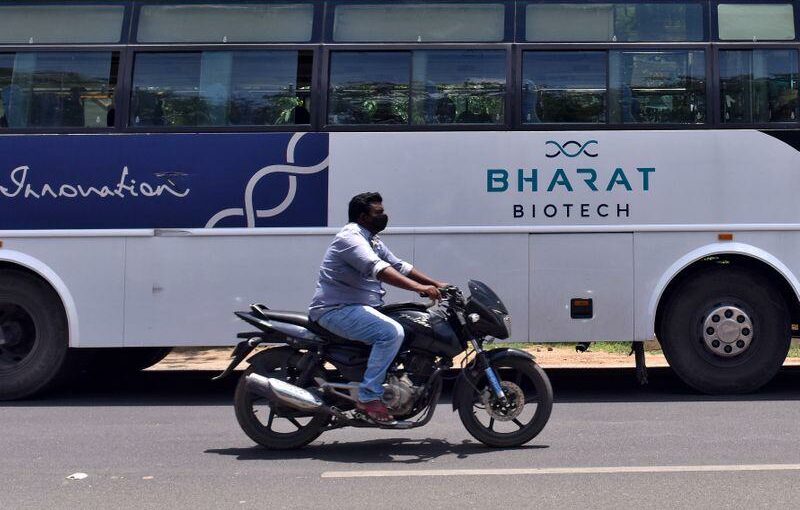BENGALURU (Reuters) -A top executive at an Indian biotechnology company defended its COVID-19 vaccine candidate, approved for emergency use by the government, and said it will produce efficacy data from late-stage trials by March.
The vaccine, COVAXIN, received emergency use approval from India’s drugs regulator on Sunday, but the move faced questions after the regulator took the step without publishing information about its efficacy.
Hyderabad-based Bharat Biotech had carried out “200 percent honest clinical trials”, Krishna Ella, chairman and managing director, told reporters an online address on Monday.
Ella highlighted the company’s experience and expertise in producing vaccines, its numerous patents and its presence in 123 countries.
The approval for COVAXIN, jointly developed with a government institute, was hailed by Prime Minister Narendra Modi and his ministers as a success in India’s self-reliance push.
Efficacy data from the company’s ongoing late-stage trial should be available by March, Ella said.
Health Minister Harsh Vardhan clarified on Twitter on Sunday that the emergency use approval for COVAXIN was “in clinical trial mode”, wherein all recipients of the vaccine would be tracked and monitored as if they were in trial.
The company is also investing in four manufacturing facilities and is planning to make around 200 million doses in Hyderabad and 500 million doses in other cities this year. The company has 20 million available doses so far.
India has the second-highest number of coronavirus infections in the world, though cases have been steadily falling since a peak in September.
India also approved the use of a vaccine developed by AstraZeneca and Oxford University which will be the lead vaccine in the country’s immunisation programme.
Source: Read Full Article
